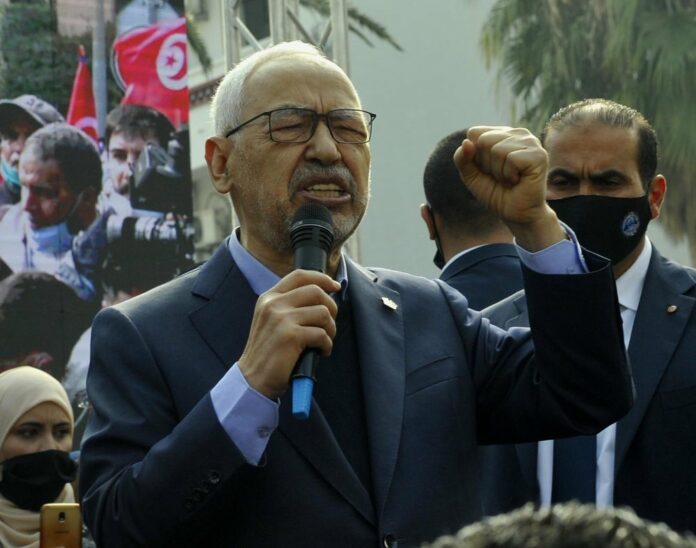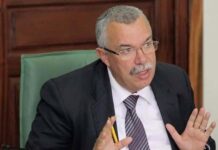The head of Ennahdha Movement confirms that he remains committed to his parliamentary capacity at the head of the frozen parliament. Tunis: The resignation of 131 members and leaders of Tunisia’s Ennahda movement has deepened fears of the disintegration of his party, calling on resignations to reconcile after his political isolation has increased further, amid calculations not without a desire to break his power from within the Islamist movement, while stressing his commitment to the presidency of parliament. “I am deeply sorry for these resignations, which undoubtedly affect the movement and its cohesion,” Ghannouchi said in an interview published tuesday on al-Jazeera’s website about the mass resignations
Since Saturday, 131 Ennahda members, including historic leaders, have announced their resignations because of what they said was “the breakdown of the internal democracy of the movement and the excessive centrality within it, and the unilateral decision of a group of loyalists of its president within it,”and holding it part of the responsibility for the current situation in the country, according to the resignation statement. “The resignations have been invested in them for decades, and they are struggling within its structures and leadership,” Ghannouchi said.
“These brothers were quick to announce their resignation, although it was possible to dialogue and seek compromises at the next conference before the end of this year, but for all his appreciation.” The resignations followed the extraordinary decisions issued by President Kais Saied on July 25th, which froze the terms of reference of parliament, stripped its members of immunity and suspended a number of sections of the constitution in exchange for taking over the executive branch with the help of the government.
It was also a reaction to the escalation led by Ghannouchi and his loyalists against these resolutions, which led the party to a state of isolation within the national political arena. Ghannouchi claimed that President Kais Saied had violated constitutional procedures since announcing the special resolutions on July 25th, saying the indefinite suspension of parliament was “unconstitutional.
” President Saied had stressed on more than one occasion that the political institutions that had been operating prior to the decision on special procedures were the danger to Tunisia, and that parliament itself was a threat to the state.
More recently, pioneers have circulated on social media in Tunisia about Ghannouchi’s mandate, as speaker of parliament, for his first deputy Samira Chaouachi , a member of the “Qalb Tounes” party (28 deputies).
Ghannouchi said Tuesday that his presidency of parliament “is a characteristic that he adheres to, and it was the result of a vote in the parliament in which the people elected their deputies, and only they (the deputies) can remove this status from me.” Ghannouchi faced the risk of being removed from office in July 2020, when four parliamentary blocs submitted a no-confidence motion, which was dropped by parliament in plenary, thanks to the support of his then ally Heart of Tunisia. On more than one occasion, parliamentary blocs sought to activate the no-confidence list against Ghannouchi on charges of “dictatorial” style in running parliament, but were unable to collect the required signatures.
The Tunisian parliament has more than once witnessed chapters of verbal and physical violence that reflected Ghannouchi’s failure to run the legislative institution, which has lost the confidence of the majority of political circles and large segments of the Tunisian people. Ghannouchi has remained silent in the face of abuses by members of his Ennahda bloc, as well as members of the Karama Coalition bloc who promote extremism with rhetoric of betrayal and atonement under the dome of parliament, which has poisoned the country’s public atmosphere and increased tensions. Calls for the dissolution of parliament followed, with hundreds of Tunisians marching in support of President Said’s decisions in the centre of the capital on Sunday, chanting slogans calling for the dissolution of parliament.
Rifi-JDD











